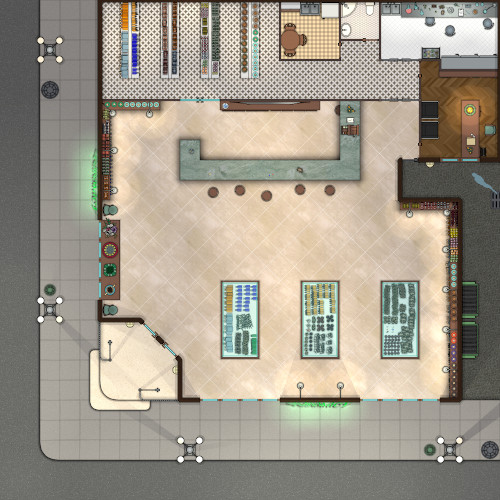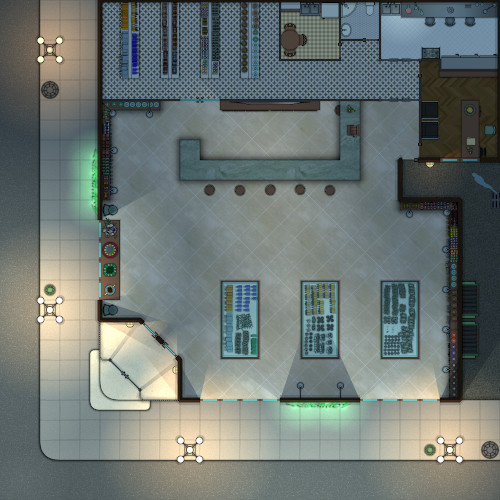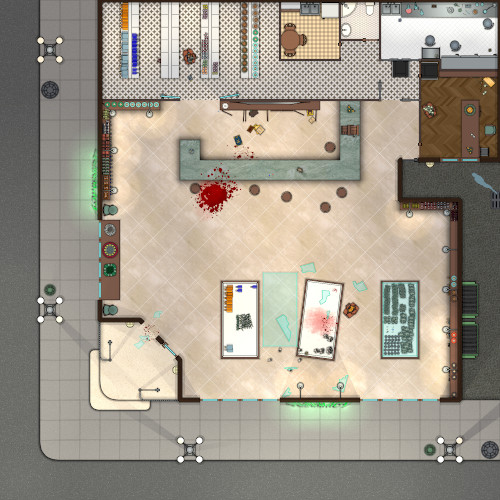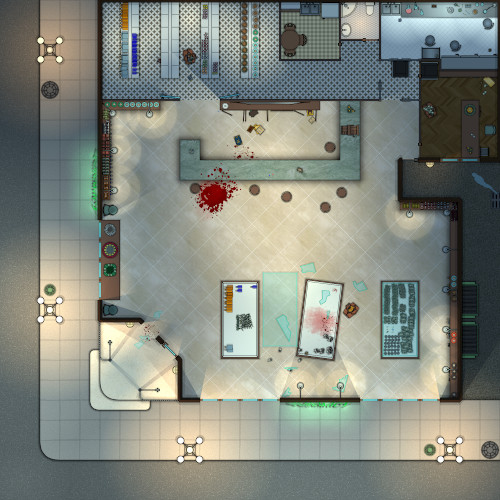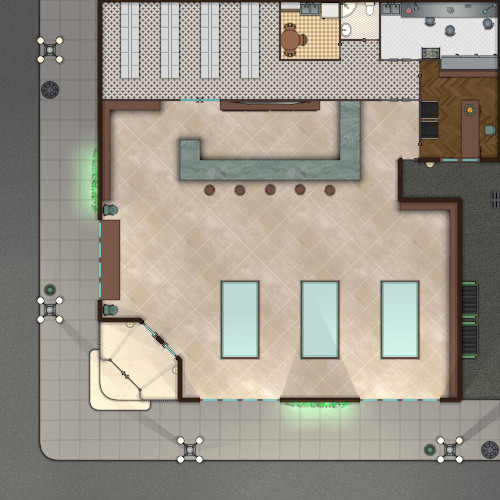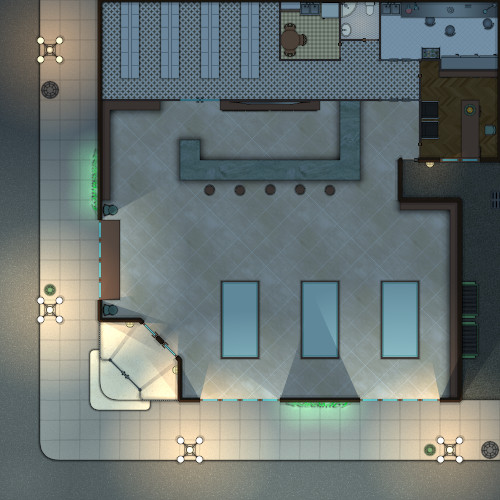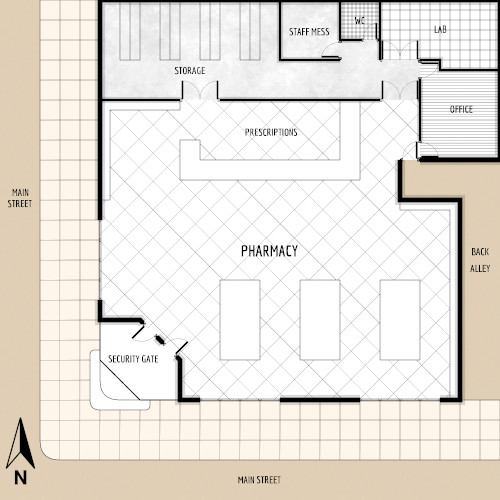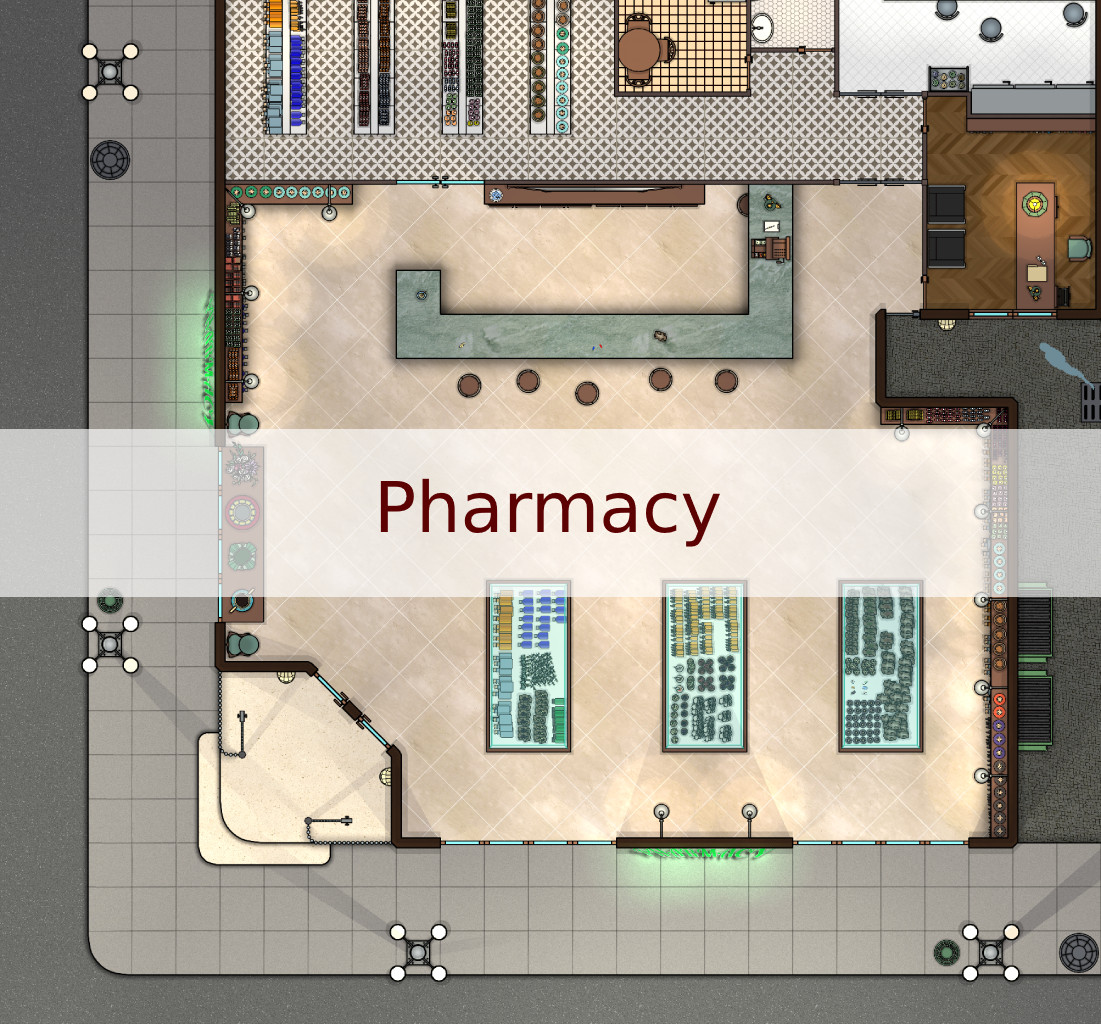Why does the pharmacist fill certain prescriptions without requiring a doctor's signature, and what's in those unlabeled bottles kept behind the locked cabinet? Which customers pick up medications at closing time through the back entrance, and why are some remedies paid for with antique currency? What's grinding in that back room compounding area after hours?
Follow Cthulhu Architect on BlueSky!Laughter is the only medicine in the world that can’t be purchased at the pharmacy.
― Michael Bassey Johnson, The Book of Maxims, Poems and Anecdotes
Cornelius Brightwater had always prided himself on his meticulous nature, a trait that served him well as the town’s only pharmacist. His shop on Elm Street had been in his family for three generations, its shelves lined with amber bottles and white-labeled vials that promised relief from humanity’s countless ailments. But lately, the prescriptions Dr. Hensley had been sending over contained compounds that made Cornelius’s skin crawl.
The formulas were written in the doctor’s familiar scrawl, yet they called for ingredients that didn’t exist in any medical text Cornelius knew. Extractum Mortis. Pulvis Stellarum. When he’d questioned Dr. Hensley about these unknown substances, the doctor had simply smiled and produced unmarked vials filled with powders that seemed to shift and writhe when observed too closely.
“Trust me, Cornelius,” the doctor had said, his eyes reflecting an odd luminescence. “These will cure ailments that conventional medicine cannot touch. Ailments of the soul itself.”
The first patient to receive the new medication was Mrs. Holloway, who’d complained of persistent headaches. She returned a week later, walking with an odd, fluid gait, her neck bending at impossible angles as she spoke. “The headaches are gone,” she’d whispered, her voice carrying harmonics that made the glass bottles on the shelves vibrate. “But I can hear so much more now. The singing between the stars.”
More patients followed. Mr. Chen’s arthritis vanished, but his joints now moved in directions that defied anatomy. Young Timothy Fletcher’s asthma disappeared entirely---along with his need to breathe, apparently, as Cornelius had watched the boy hold his breath for over ten minutes while waiting for another prescription.
As weeks passed, Cornelius noticed the changes weren’t limited to his customers. His own reflection seemed wrong somehow, his features subtly rearranging themselves each morning. His fingers had grown longer, more dexterous, perfect for measuring the increasingly exotic compounds Dr. Hensley required. And the dreams---endless visions of vast libraries where the books bled knowledge directly into his mind.
The night Cornelius finally understood what was happening, he found himself no longer horrified but grateful. Standing before his bathroom mirror, watching his face split open like a flower to reveal the cluster of eyes beneath, he realized the truth: they weren’t being poisoned or transformed against their will. They were being prepared. Evolved. Made ready for a world that was itself changing, where the old flesh would be inadequate for the new reality pressing against the boundaries of existence.
The pharmacy remained open, its shelves now stocked with remedies for ailments that had no names in human language. And Cornelius Brightwater, pharmacist to the transitioning world, continued to fill prescriptions with the patience of one who had glimpsed the beautiful horror that awaited beyond the thin veil of ordinary existence.
